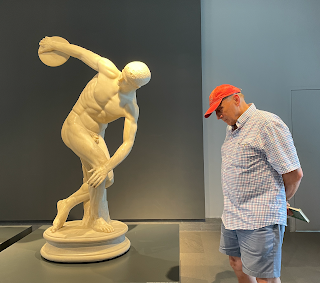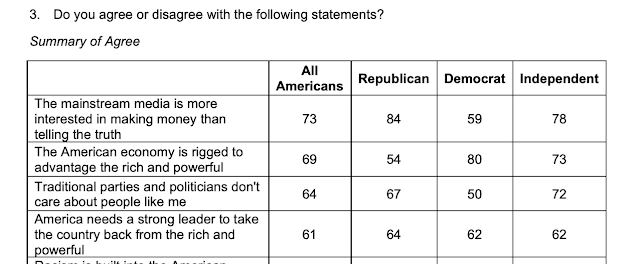Americans agree that issues of race and gender divide us.
Democrats want schools to teach about them.
Republicans don't.
College classmate Jeffrey Laurenti drew my attention to a Monmouth University opinion poll. Laurenti is a political scientist, and a former senior analyst with a boutique foreign policy think tank. He lives in New Jersey, where he has been active in Democratic politics. He served as an Obama elector in the 2012 election.
 |
| Laurenti |
Guest Post by Jeffrey Laurenti
Opinion research published today helps illuminate the targets on which political aspirants on the right like Ron DeSantis, and the media organs of the right like Fox, are homing in.
Data compiled by the Monmouth Poll show that while teaching on racial aspects of history is uncomfortable mainly for the large subset of whites who identify as Republican, a significant majority of the American public at large acknowledge that racial gaps need to be more forthrightly addressed -- including blacks, Asians, and Hispanics, and the large subset of whites who identify as Democrats. In focusing on issues with assertedly ethno-racial reverberations like immigration and violent crime, the right is essentially appealing to its existing base, not expanding it.
The gold mine for the right, however, seems to be on issues touching on what the pollster delicately calls "gender identity," where significant majorities of blacks, Asians, and Hispanics profess discomfort with dealing directly with debates on such concerns in classrooms. The only demographic flagged in this survey that favors broadening, rather than restricting, teaching about gender identity issues in schools is... white Democrats. No wonder the hysteria about transgender that's sweeping Republican-controlled legislatures.
Of course, to the extent that the right can exploit issues that may pit black interests against those of Asian and Hispanic voters, they may be able to move the needle on racial "wokeness," but that's far less cost-free an area on which to focus than the transgender concerns.
----
Here is a summary of the poll results, with details available by going to the link for the full details:
 |
| Widespread agreement that race is central to our politics |
And then the sharp partisan divide over whether schools should address sensitive issues.
This is another iteration of widespread decline in trust in public institutions. Republicans don't trust public schools. Republican voters suspect American history is taught to the disadvantage of Whites and that matters of gender as taught and implemented by schools are wrong and dangerous. There are "your facts" and "alternative facts." Your story and my story. Overwhelming majorities of White Republican voters don't trust schools to tell the story of race and gender their way, so they don't want them taught.
[Note: To get daily delivery of this blog to your email go to: https://petersage.substack.com and subscribe. The blog is free and always will be.]























